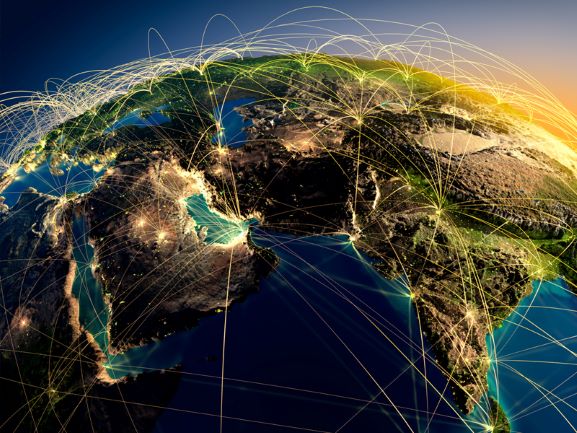Riyadh: The economies of the Gulf Cooperation Council (GCC) are projected to expand by 6.9 %in 2022 before moderating to 3.7% and 2.4% in 2023 and 2024, according to the new World Bank Gulf Economic Update (GEU).
GCC member states are Saudi Arabia, the United Arab Emirates, Qatar, Bahrain, Kuwait and Oman.
Easing of pandemic restrictions, and positive developments in the hydrocarbon market drove strong recoveries in 2021 and 2022 across the GCC. Strong economic recovery and supply chain bottlenecks raised inflation in the GCC to an average rate of 2.1% in 2021 — up from 0.8% in 2020.
Supported by higher hydrocarbon prices, the GCC region is expected to register strong twin surpluses in 2022 and continue over the medium term. The regional fiscal balance is projected to register a surplus of 5.3% of GDP in 2022 —the first surplus since 2014 — while the external balance surplus is expected to reach 17.2% of GDP.
This issue of the (GEU), titled "Green Growth Opportunities in the GCC," examines the development of the green growth sectors and looks at the potential opportunities this could provide for the GCC countries. The report also discusses GCC countries’ plans to decrease the use of fossil fuels to generate electricity, their aims to increase the capacity of renewable energy to power domestic electricity needs, and their goals to enhance the role of the private sector and reduce the role of the public sector. At the same time, it looks at how the climate agenda could be used to further diversify their economies in high growth sectors, including the upstream and downstream industries for the energy transition.
"There is an excellent and timely opportunity to diversify the economy further using a green growth strategy, and playing a leading role in the global transition to low-carbon economies," said Issam Abousleiman, World Bank Regional Director for the GCC, in a media release on Monday.
"The region could use the green growth transition to focus policies on developing green technologies and associated skilled labor that would reverse trends in productivity and enable the region to grow faster," Abousleiman added.
The GCC countries' total GDP is projected to be close to US$ 2 trillion in 2022. If the GCC continued business as usual, their combined GDP would grow to an expected US$ 6 trillion by 2050. However, if the GCC countries implemented a green growth strategy that would help and accelerate their economic diversification, GDP could have the potential to grow to over US$ 13 trillion by 2050.
Cek Berita dan Artikel yang lain di Google News
FOLLOW US
Ikuti media sosial medcom.id dan dapatkan berbagai keuntungan



















